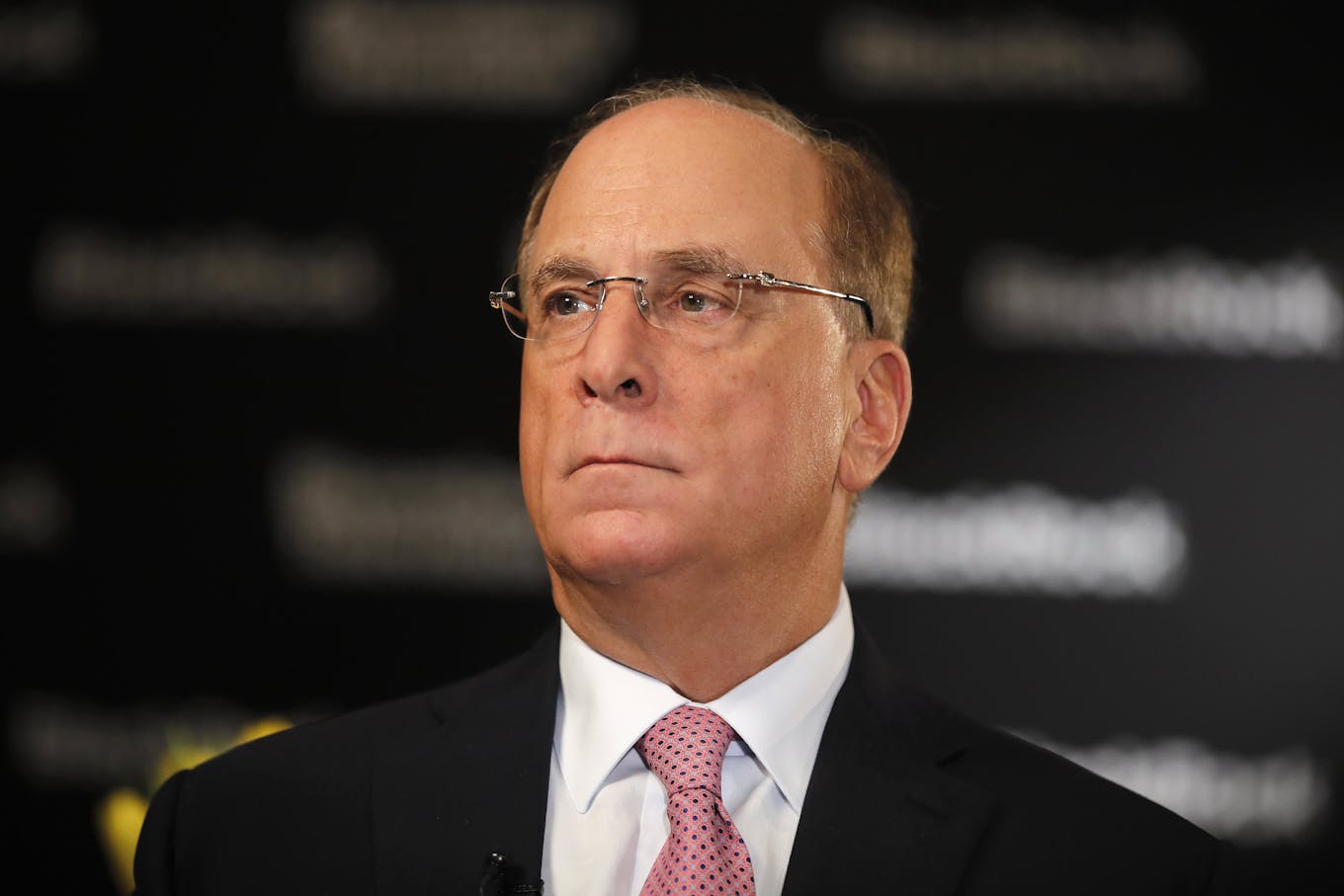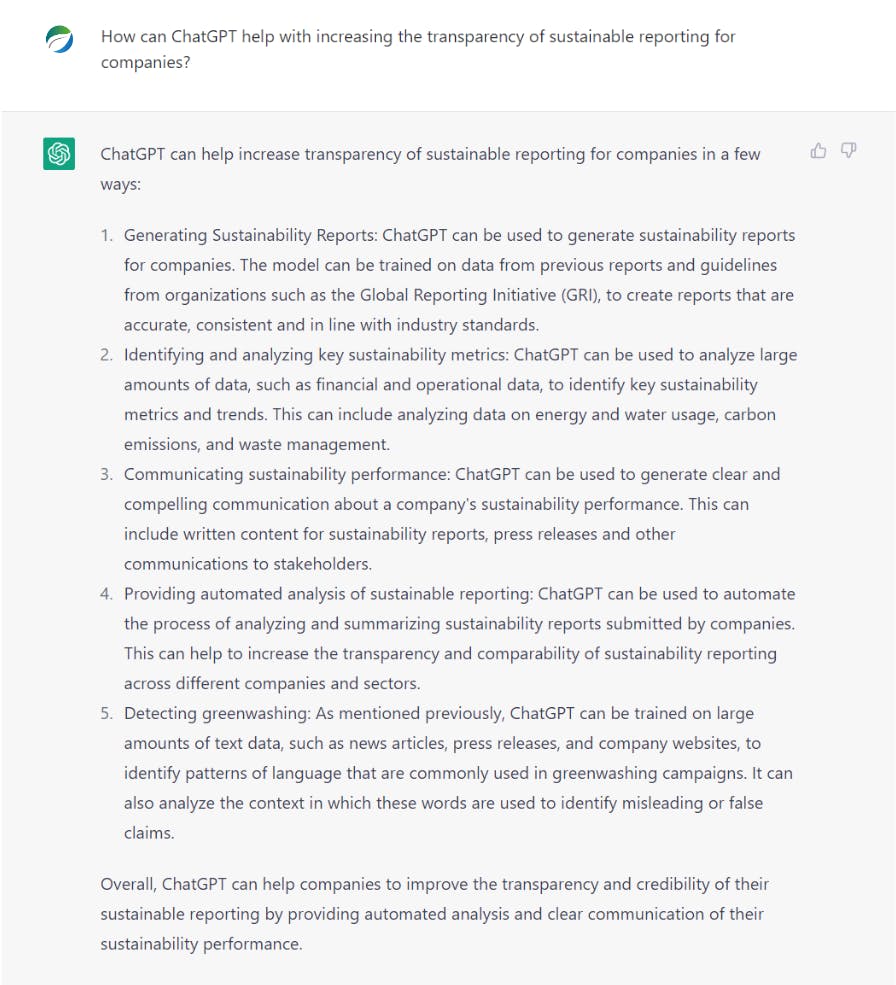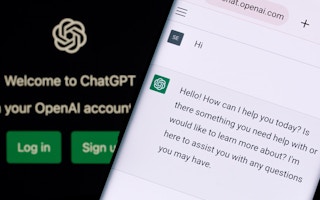Writing a sustainability report can be highly manual, tedious work, and the emergence of ChatGPT as a tool that can perform research and data analysis has gotten the industry abuzz about the potential of it taking over the entire task altogether.
To continue reading, subscribe to Eco‑Business.
There's something for everyone. We offer a range of subscription plans.
- Access our stories and receive our Insights Weekly newsletter with the free EB Member plan.
- Unlock unlimited access to our content and archive with EB Circle.
- Publish your content with EB Premium.
In the environment, social and governance (ESG) data solutions space, service providers are now experimenting with ChatGPT’s functions, as they anticipate that it could be something that will ‘revolutionise’ the future of sustainability reporting – or the practice of disclosing data related to the ESG impacts of an organisation.
Sustainability practitioners whom Eco-Business spoke to, however, cautioned that the message and tone of ESG reports need to be carefully crafted. Thomas Milburn, regional director at sustainability consultancy Corporate Citizenship, emphasised that especially with regulators clamping down harder on greenwash claims, companies “don’t want to say the wrong thing or [say things] in the wrong tone”.
ChatGPT also does not have – and companies might hesitate to entrust it with – access to a lot of non-public information that goes into their ESG reports, said Milburn.
Describing sustainability reporting as “part art, part science”, Milburn emphasised that the entire process is more than just “getting the form, filling it out”. Rather than entrusting ChatGPT to write a company’s entire sustainability report, Milburn believes that it will eventually be incorporated into other kinds of reporting software.
“So you may not necessarily use ChatGPT directly, but you would start to see software providers providing data management and reporting solutions incorporating an element of AI.”
ChatGPT can do a lot of the “low-level functions”, Milburn suggests, which includes the consolidation of information into a narrative for ESG reports. But this is different from “actual report writing”.
For Jason Tu, co-founder and CEO of the sustainability data and solutions provider MioTech, compared to previous natural language processing (NLP) algorithms that the artificial intelligence (AI)-enabled platform had experimented with, ChatGPT’s answers show a significant leap in quality.
When MioTech first tried to use AI tools to write up reports from quantitative and qualitative information that had been gathered, the result – as Tu describes – was akin to “a schooler who was trying to write up an essay from an outline”.
But with ChatGPT – which Tu discloses MioTech’s engineers are currently experimenting with – not only can these pieces of information be presented in a coherent report, but there is a high probability that the writing can be tailored to reflect overall business sentiments, like a degree of optimism or pessimism, that the top management wants to deliver to the markets.
As such, Tu believes that ChatGPT could write the CEO letter in annual sustainability reports in the future – a task that previous algorithms were “not able to handle”.
“[NLP] is not brand new in the industry – rather, it’s the quality. When we are talking about NLP, we are talking about accuracy, precision… and whether it can understand more complex kinds of rhetoric within the pure language,” said Tu.
NLP is a field of AI that enables machines to understand and respond to human language as it is spoken and written. Some everyday applications of NLP include smart assistants like Apple’s Siri and Amazon’s Alexa, as well as predictive text on smartphones.
Use ChatGPT like you would a good consultant
San Francisco-based OpenAI’s ChatGPT, which has captured the world’s attention since it launched in late 2022, is taking NLP further with the chatbot’s ability to generate novel and extremely human-like responses based on a large dataset it has been trained on. It is also able to contextualise its responses in different conversations it has with users – all of which it remembers.
Milburn likens the potential game-changing implications of ChatGPT to when the first mass-produced personal computers were introduced, “It is a bit like when computers came in, what did we do before Excel?” The computer spreadsheet software enabled calculations and data analyses – previously laborious undertakings – to be done with considerably more ease and in real-time.
While companies could end up with a great report using ChatGPT, Milburn argued that companies should not fully outsource the writing of their reports – much less their CEO letter – to it.
“If I were a multi-billionaire and I was putting money in all of the Singapore Exchange-listed companies, I wouldn’t want them to be using this to do all of their reporting because I want to know what’s actually inside the CEO’s mind,” he said.

Blackrock CEO Larry Fink’s annual letter to CEOs is carefully watched by global players in the sustainable investing space. Image: Stefan Wermuth/Bloomberg via Getty Images
“As an investor, I want to make sure that when I speak to the C-suite, the people actually running the business, the strategy presented in a report is not fiction – it reflects reality,” said Milburn.
Instead, companies should use ChatGPT like they would a good consultant, he said. “Good consultants will really try and help take that business on a journey and work with them, not churn out report after report that looks the same and have the same language.”
This ensures that the use of ChatGPT value-adds to their report writing, instead of relegating the task to an exercise in “box ticking”.
“In the next three to five years, I think there will be much less focus on hiring a consultant to publish a report,” anticipates Tu. Instead, he predicts that ChatGPT and Google’s recently-launched AI chatbot ‘Bard’ will “push the industry to an extreme” of focusing more on data collection, management, and analytics.
In this shift, Tu believes that companies will continue to employ consultants and use technical systems, but for the purpose of gathering, preparing and analysing the data to be put into an outline. Thereafter, algorithms can then be used to “generate a decent report”.
In Tu’s view, the future of ESG reporting – and more broadly, financial reporting – will also be more modularised, where different people, algorithms, and software will specialise in working on different stages of the value chain.
“There will be a person or technical system in charge of collecting or digitising the data. There will be systems or features within technical systems in charge of, for example, doing some benchmark analyses,” he said.
Sustainability is more than ESG reporting
In considering how ChatGPT might revolutionise this space, Milburn clarifies that a company’s sustainability strategy is not limited to ESG reporting. “[ChatGPT] doesn’t replace human thought and judgment because sustainability or ESG is not [only about] reporting. It is about how we run and manage businesses, and until we hand that over to the machines, there is still a need for business leaders to think about what they are doing and how they communicate that to their stakeholders,” said Milburn.
“
… Sustainability or ESG is not [only about] reporting. It is about how we run and manage businesses, and until we hand that over to the machines, ther is still a need for business leaders to think about what they are doing and how they communicate that to their stakeholders.
Thomas Milburn, regional director, APAC, Corporate Citizenship
Echoing Milburn’s sentiments, Frederik Otto, founder of non-profit think tank The Sustainability Board Report, concurs that sustainability professionals in leadership positions do not have to worry about AI taking their jobs away. “Their jobs are all about leadership and inspiring organisations – AI will never inspire organisations,” he said.
Otto, whose organisation releases annual reports on the ESG preparedness of the board of directors of the world’s largest companies, tried asking ChatGPT to draft a board charter for Microsoft’s board sustainability committee to include material sustainability issues – something companies usually employ law firms to do.
The result of this experiment, in his words, was “nothing short of remarkable to an intimidating extent”.
Applied to ESG reporting, ChatGPT and other AI tools could free up time for sustainability leaders to carry out their leadership imperative of engaging stakeholders and meaningfully implementing ESG strategies. “Many chief sustainability officers are burdened by these reporting exercises, with much effort and time spent on collecting data and reporting manually, and making sure that the ESG reporting is audit-ready,” said Otto.
As excited as Milburn is about ChatGPT, he believes the revolutionisation of sustainability reporting from advancements in AI technology will also require other developments – especially in standardisation of reporting frameworks – coming together at the right time.
The International Sustainability and Standards Board has announced that it has finalised the new global sustainability disclosure standards for companies, which is expected to take effect in 2024.
What ChatGPT said about ESG report writing
Eco-Business ran a ‘mini experiment’ and asked the AI chatbot what it thought about generating high-quality ESG reports. It was quite bullish about the prospect of delivering it effectively. It claimed that it can help companies improve the transparency and credibility of their ESG reports – if only they allow it to.
This was its reply:

An excerpt of a conversation with ChatGPT on how it can help increase the transparency of sustainable reporting for companies. It claims to be able to “create reports that are accurate, consistent, and in line with industry standards.” Image: Gabrielle See/Eco-Business










